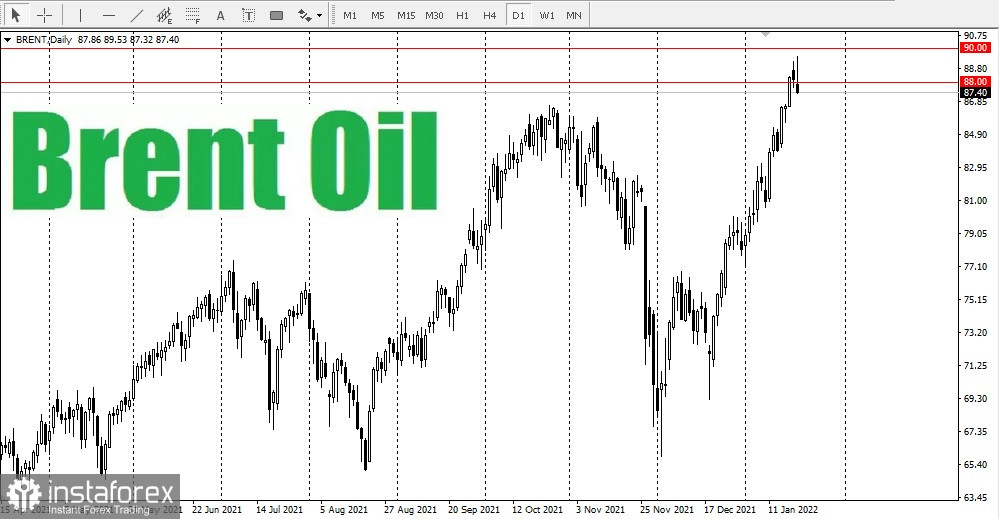
Oil is trading at a seven-year high as strong demand is combined with supply issues and declining inventories.
Its prices narrowly fell short of $90 a barrel, the level at which raw materials were last traded in 2014.

North Sea benchmark crude oil traded above $88 a barrel on Thursday, which was higher than a quarter of recent lows seen in December.
Analysts at Goldman Sachs predict oil prices could hit $100 a barrel this year, making it even more difficult to fight inflation that has reached high levels in advanced economies such as the United States and Germany.
The reasons why oil prices could rise above the level of $100 are the following:
- Oil is showing strong demand
Air travel, while still below the pre-pandemic level, has so far resisted the Omicron wave, leading to an increase in jet fuel demand in Europe. Diesel fuel prices are also rising due to the demand for heating oil amid a sharp rise in prices for natural gas, transport, and industrial fuel.
- Air travel is expected to continue to recover in 2022
The demand for fossil fuels in the Northern Hemisphere will increase only during the summer holidays when people go on vacation.
On another note, the overall supply situation is not expected to improve anytime soon since unplanned disruptions in Libya, Kazakhstan, and Ecuador have agitated existing supply problems.
The Organization of the Petroleum Exporting Countries and OPEC+ are trying to recover the record production cuts they imposed in 2020.
The alliance is increasing its production quotas by 400,000 barrels per day on a monthly basis, but this is not enough as oil producers from Nigeria are struggling with a lack of investment and operational problems.
Only major OPEC producers, such as Saudi Arabia, the United Arab Emirates, and Iraq remain with reserve capacity for a rapid increase in production. However, economists say that reserve capacity has been at its lowest level in recent years, and this is not enough to make traders confident that they can act as a shock absorber in the event of supply disruptions, especially when global oil reserves have fallen below pre-crisis levels.
Rystad Energy's senior vice president of analysis Claudio Galimberti said that oil markets are particularly sensitive to geopolitical tensions. Therefore, if the political and security situation of major oil producers such as Kazakhstan and Libya worsens, oil prices could rapidly increase.
Oil supplies also remain vulnerable as tensions escalate between Saudi Arabia and Iran in the Middle East following a drone attack by an Iran-linked Yemeni Houthi group on the UAE.
 English
English 
 Русский
Русский Bahasa Indonesia
Bahasa Indonesia Bahasa Malay
Bahasa Malay ไทย
ไทย Español
Español Deutsch
Deutsch Български
Български Français
Français Tiếng Việt
Tiếng Việt 中文
中文 বাংলা
বাংলা हिन्दी
हिन्दी Čeština
Čeština Українська
Українська Română
Română

